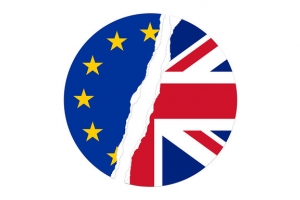Support migrant centric journalism today and donate

Sanwar Ali comment:
It is not certain exactly when changes to the Shortage Occupation List will occur. We think it is likely that UK Visa and Immigration will make changes. However, there is also some political pressure to maintain tough immigration controls. The anti-immigration Brexit Party did very well in the recent European Elections.
In addition, even if these changes do actually happen the Tier 2 Visa and Tier 2 Sponsor Licence system remains a confusing, complicated and bureaucratic system with sky high Government fees. The real benefit is, if the changes do happen, that fewer companies will have to do the Resident Labour Market Test.
The Migration Advisory Committee (MAC), a so-called independent public body that advises the government on matters of UK immigration, has told MPs that Britain needs more skilled workers from abroad. Following a review of the Tier 2 visa shortage occupation list (SOL), MAC recommended a number of occupations that should be added to the list.
According to the review, Brexit uncertainty, a slump in the number of EU migrants coming to live and work in the UK, plus growing demand has intensified skills shortages in the UK. Following the review, chair of the committee, Professor Alan Manning, says ‘employers are struggling to fill vacancies that desperately need skilled workers.’
Among the occupations recommended for inclusion on the Tier 2 SOL, which the MAC says should be added as soon as possible, are archaeologists, occupational therapists, psychologists, vets, web designers and more.
Meanwhile, the review advises that occupations already on the SOL should be expanded to cover all roles within the category, including medical practitioners, artists and civil engineers.
Home Secretary, Sajid Javid, commissioned a review of the SOL after the monthly Tier 2 visa cap, split across 20,700 made available throughout the year, was hit in April 2018. The monthly quota was reached for a record seventh time in June 2018.
UK skills shortages no secret
The furore surrounding UK immigration has highlighted a catalogue of skills shortages across the country, with many business leaders and employers opposed to the government’s hostile immigration policy.
The SOL was created by then Home Secretary, now outgoing Prime Minister Theresa May, as part of the Tory Party’s now infamous pledge to cut net migration to the tens of thousands – a target that never has and is unlikely to ever be met.
Stricter UK visa and immigration rules have deterred many badly needed skilled workers from coming to Britain, while those that have tried have found it increasingly difficult to navigate a bureaucratic system driven by anti-immigrant rhetoric.
According to the MAC’s review, the inclusion of additional occupations and the expansion of job roles across all categories currently on the SOL, will mean that the list would cover approximately 9% of jobs in the UK labour market compared to the one per cent under the existing list.
It has been reported that many job categories have already been expanded to include all occupations in those categories. However, it has not yet been disclosed what these categories are.
Wales, Scotland and Northern Ireland Shortage Occupation Lists
As part of its review, the MAC was asked to examine whether adding Northern Irish and Welsh SOLs to the existing UK and Scotland-only lists was a viable option. The MAC has agreed that devolved SOLs should be created, in principle.
The MAC has further recommended a review of what part, if any, the Tier 2 SOL should play in a future UK immigration system.
Professor Alan Manning said: “The outlook of the labour market is very different to the one we reviewed when the last SOL was published in 2013. Unemployment is lower and employers in various industries are facing difficulties in finding skilled people to fill their vacancies.”
Recommendations only applicable under current UK immigration system
“We have recommended expanding the SOL to cover a range of occupations in health, information and engineering fields. However, our recommendations are clearly only applicable under the current immigration system, while EU free movement remains,” Professor Manning said.
“The MAC is recommending a full review of the SOL once there is a clearer picture of what the future UK immigration system will look like,” Professor Manning added.
The current SOL contains 34 occupations with 143 job titles listed. The primary benefits of the SOL is that it prioritises certain Tier 2 visa applications in the event of a monthly availability being met. It also exempts certain jobs roles from the resident labour market test (RLMT).
Expanding Shortage Occupation List will help businesses access skills
Head of people policy at the British Chambers of Commerce, Jane Gratton, said: “Expanding the shortage occupation list will help businesses access the skills they need when they can’t recruit locally. But the ending of free movement will present significant costs and challenges for employers.”
An official statement from the MAC said: “The government has accepted recommendations to abolish the cap on Tier 2 visas and the RLMT, but this is unlikely to come into effect until 2021 at the earliest.”
In addition to including occupations on the SOL, the MAC advised the removal of others in its report, including:
- Aircraft maintenance workers
- Buyers and procurement officers
- Health professionals (including dieticians and prosthetists)
- IT specialist managers
No place for teachers on the SOL
In January 2019, workpermit.com reported that the government’s Department for Education (DfE) had said it would “consider giving international teachers higher priority for UK visas.”
However, the MAC’s review made no recommendations to expand the SOL to include teachers, a decision that has angered and baffled a lot of school heads currently struggling to fill key teaching roles.
One education leader said: “Thankfully, these are only recommendations. Hopefully, the Home Secretary will see sense and overrule the recommendation not to include educators.”
Other recommendations listed by the MAC, as specified by a government statement, include:
- A consideration of medium-skilled occupations, which may become eligible for the SOL in the future system
- The inclusion of Gaelic teachers in the Scotland-only SOL
- Pilots to expand the evidence-base on what might work in migration policy for remote communities
- Removing the restriction on chef visas, which currently excludes those offering a takeaway service. This is in recognition of the changing nature of the hospitality sector and with the aim of future-proofing the list
Following the MAC’s report, the Home Office has said it will issue a response after reviewing the recommendations made.
Workpermit.com can help with Tier 2 Visa Sponsorship Licences
If you need help with a Tier 2 Sponsorship Licence or would like help with complying with your Tier 2 Sponsorship Licence obligations workpermit.com can help. Call 0344 991 9222 for further details.
Workpermit.com has been in the visa business for more than 30 years, helping thousands of people to study, work, invest and live in the UK. We represent clients under Section 84 of the 1999 Immigration Act, and we can advise and assist with your UK visa application.





















